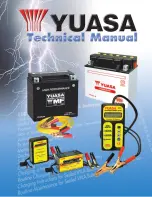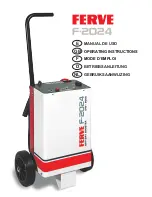
Every time you check inflation, you
should also examine the tires for
damage, foreign objects, and wear.
You should look for:
Bumps or bulges in the tread or
side of the tire. Replace the tire if
you find either of these conditions.
Excessive tread wear.
In addition to proper inflation,
correct wheel alignment helps to
decrease tire wear. If you find a tire
is worn unevenly, have your dealer
check the wheel alignment.
Cuts, splits, or cracks in the side
of the tire. Replace the tire if you
can see fabric or cord.
Your vehicle’s tires have wear indica-
tors molded into the tread. When the
tread wears down to that point, you
will see a 1/2 inch (12.7 mm) wide
band running across the tread. This
shows there is less than 1/16 inch
(1.6 mm) of tread left on the tire. A
tire that is this worn gives very little
traction on wet roads. You should
replace the tire if you can see the
tread wear indicator in three or more
places around the tire.
The tires were properly balanced by
the factory. They may need to be
rebalanced at some time before they
are worn out. Have your dealer
check the tires if you feel a consis-
tent vibration while driving. A tire
should always be rebalanced if it is
removed from the wheel for repair.
Inspection
Maintenance
Tires
Maintenance
280
INDICATOR LOCATION MARKS
TREAD WEAR INDICATORS
02/07/24 15:07:06 31S9A610 0285
















































